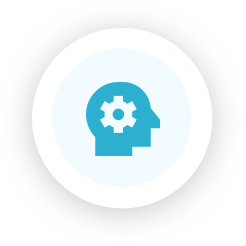Knowledge Management (KM) refers to the process of creating, sharing, using, and managing the knowledge and information within an organization. It involves strategies and practices used in an organization to capture, preserve, and ensure access to valuable information by those who need it.

Knowledge Management Assessment
What is a Knowledge Management Assessment?
WIN’s Knowledge Management Assessment Service is designed to help organizations identify strengths and weaknesses in their current Knowledge Management strategy and identify areas for improvement based on their current state, desired state, and unique organizational needs.
A Knowledge Management (KM) Assessment assesses an organization’s knowledge management strategy and scores them using a five-level maturity model. Following the assessment, organizations receive a detailed report, executive summary and meet with an experienced KM professional to discuss key findings and identify areas for improvement.

Components Assessed by WIN’s Knowledge Management Assessment Include:
- Creation and Preservation
- Storage, Organization and Retention
- Sharing and Distribution
- Transfer and Succession Planning
- Culture and Adoption
- Security and Compliance
- Technology and Infrastructure
- Strategy and Governance
Knowledge Management Assessment Deliverables Include:
- A detailed report and executive summary of key KM findings
- A meeting with a KM professional to discuss strengths and areas of need
- Highlighted opportunities to improve your current KM maturity scores
FAQs
Frequently Asked Questions
Maturity models assist with understanding the level of capabilities and competencies ranging from non-existent to visionary. It’s a powerful way to understand where your organization sits in the range and how to think about what each next step of maturity may involve. It’s a non-judgmental method to describe where you are and make some prioritized decisions about where you may want to improve.
The key components of knowledge management often include:
- Knowledge Creation: Developing new knowledge or modifying existing knowledge.
- Knowledge Capture: Acquiring knowledge, both tacit (inside a person’s mind) and explicit (recorded).
- Knowledge Sharing: Distributing knowledge to others within the organization.
- Knowledge Application: Implementing knowledge, making it useful and applicable to achieve business goals.
- Knowledge Retention: Storing knowledge so that it can be used in the future.
- Knowledge Updating: Revising and removing outdated knowledge to maintain relevance.
RELATED Resources

Working With Us
What to expect from a strategic partnership with WIN Technology

Understanding Fit
Our process is collaborative from the start. As we discuss your expectations, we communicate openly, and we keep the promises we make.

Understanding Needs
Through our discovery process, we seek to build an accurate understanding of your needs so that a sound and mutually understandable promise can be made.

Right-Sizing the Effort
The elements of your proposal are refined as your needs become clear. This ensures alignment on the anticipated value of what we commit to deliver to you.

Proving Competency
As we engage in the project, we monitor and discuss status, performance, changes and improvements through our established delivery and communication practices.

Partnering for the Future
Throughout our partnership, as we keep the promises we have made to you, we enrich the value of services with a continuous focus on practical next steps.



